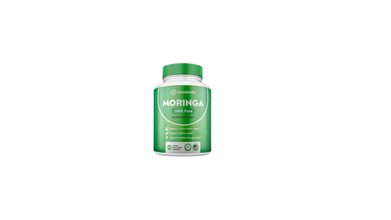- Health Conditions A-Z
- Health & Wellness
- Nutrition
- Fitness
- Health News
- Ayurveda
- Videos
- Medicine A-Z
- Parenting
UK Issues Slushie Warning: Why This Summer Favourite Could Be Risky for Kids

Just as British summer hits full swing, the UK’s Food Standards Agency (FSA) has dropped a warning: slushies may not be so child-friendly after all. In an urgent new advisory, the FSA has warned parents to steer clear of giving slush ice drinks to children under seven, especially those containing a chemical called glycerol. And for kids between seven and ten? Keep it to a strict 350 ml a day.
What’s So Dangerous About a Slushie?
Slushies may seem like they beat the heat, but beneath that colour lies a syrupy science experiment. Most commercial slush drinks get their signature texture from glycerol, a compound that keeps ice from freezing into one giant block and gives slushies their semi-liquid, chewable charm. The trouble is, glycerol is harmful when consumed in large quantities, especially by small bodies.
According to the FSA, excessive intake of glycerol in a short span can cause mild symptoms like nausea, headaches and vomiting. But in more severe cases, children can suffer from dangerously low blood sugar, go into shock, or even lose consciousness.
The Risks Are Real and Rising
This warning did not come out of nowhere. The FSA has seen a surge in reports of children collapsing after drinking slushies. In many of these cases, the affected kids had consumed slush drinks in large amounts over a short period.
Summer’s New Parenting Rule
The FSA is urging parents and carers to be vigilant. Before buying a slushie, they recommend asking vendors whether the drink contains glycerol. If you are not sure, play it safe, especially with younger kids. Parents should also keep an eye on home-use slush kits and ready-to-drink slush pouches, which may also include this ingredient.
The shops have now also been instructed to stop offering free slushie refills for children under 10 and to use the minimal amount of glycerol necessary to get that slushy texture.
What to Do If a Slushie Turns Sour
If your child starts feeling queasy or dizzy after downing a slushie, do not panic, but do act. In mild cases, giving them a sugary snack or drink can help stabilise blood sugar levels. But if your child seems lethargic, confused, or unresponsive, call 999 immediately. It is better to be overly cautious than to risk a serious health episode.
Slushie Season, But Make It Safer
This new advice arrives just ahead of the school summer holidays, the peak slushie season in the UK. As temperatures soar, these icy drinks will be everywhere. The message from the FSA is clear: slushies are not forbidden, but they are not harmless either. Especially when they are packed with glycerol and served up to tiny tummies.
Christy Carlson Romano’s Cancer Test Result Shows Why Regular Screening Is Important

Credit: Instagram
American actress Christy Carlson Romano’s shocking announcement of a positive cancer screening test has reignited the debate on the rising early onset of cancers among women, as well as the importance of early screening.
Cancer is everywhere, said Romano, 41, in a tearful video on social media platform Instagram.
The former Disney star noted that she underwent cancer screenings, along with her husband, Brendan Rooney, as her family has a history of cancer.
“My husband’s came back completely negative,” she said, adding, “Mine did not come back negative. So basically, what that means is that I may have stageable cancer.”
The ‘Even Stevens’ star shared that she next aims to get a PET scan, which will help her gauge the stage of the cancer.
Early-onset Cancers Rising Among Women Under 50
While the news of Romano's positive cancer test has left fans shocked, it also highlights the fact that cancer is increasingly shifting its attack to women under 50.
A 2025 study by Duke Cancer Institute in the US revealed that for women younger than 50, the risk of developing cancer is 82 percent higher than that of men, up from 51 percent in 2022.
The 2025 annual report from the American Cancer Society (ACS) also showed that cancer rates in young and middle-aged women are rising past those of men in the same age group, but especially among women under age 50.
While breast cancer has emerged as the most common among women under 50, it is followed by thyroid cancer, melanoma, and skin cancers. Cervical cancer, ovarian cancer, and colorectal cancer are other names. Uterine cancer, also known as endometrial cancer, is also killing more women than ever.
Notable names include Princess of Wales Kate Middleton, who was 42 when she announced her cancer diagnosis two years back. American actress Olivia Munn reported a breast cancer diagnosis at the age of 43.
Similarly, Indian actress Sonali Bendre was 46 years old when diagnosed with high-grade metastatic cancer in July 2018. Others with young cancer onset include Hina Khan, Chhavi Mittal, Dipika Kakkar, and Tahira Kashyap. Young TV actresses Dolly Sohi and Priya Marathe reportedly succumbed to cancer.
According to studies, besides genetic factors, increased intake of highly processed foods, sugary beverages, lack of exercise, the surge in stress levels, exposure to air pollution, microplastics, and mindless intake of antibiotics, and even increased screen time are major contributors to the deadly disease.
Other possible risk factors include alcohol consumption, sleep deprivation, smoking, and obesity.
Why Is Early Screening Important?
Late diagnosis is a major driver of cancer deaths. On the contrary, early screening can help detect changes in the body's cells before cancer develops and spreads.
It can also help in cancers, which present no symptoms until the late stage.
It not only improves survival rates but also helps with less invasive and more effective treatments.
Regular screening measures include mammograms, Pap smears, colonoscopies, Low-dose CT Scans, and PSA tests, which reduce mortality by identifying cancer at early and manageable stages, preventing its progression and the risk of death.
Why Obesity In India Must Be Treated As A Chronic Disease

Credit: Canva
India is undergoing a steady but serious public health shift. For decades, obesity was long dismissed as a matter of personal discipline, a “lifestyle choice,” to be managed by sheer willpower.
However, it has emerged as a progressive, chronic disease with complex biological roots that demand sustained medical care, which is no longer confined to urban centers. It now affects smaller towns and rural communities alike. The National Family Health Survey (NFHS-5) reports that nearly one in four Indian adults is overweight or obese.
The situation in children is even more alarming, as UNICEF estimates that by 2030, India could have more than 27 million children and adolescents aged 5-19 years living with obesity, which would account for 11 percent of the world’s burden and put millions at risk of early metabolic disease.
Yet obesity continues to be viewed largely as a lifestyle lapse rather than a chronic, relapsing condition shaped by genetics, environment, and metabolic dysfunction. Like diabetes or hypertension, it progresses over time and requires structured, long-term medical management.
The Pediatric Crisis And The Looming Public Health Debt
The clearest sign of how serious this problem has become is visible among children. Recent findings published in The Lancet estimate that more than 12.5 million Indian children are living with obesity. This is not a distant warning; it is unfolding in clinics across the country.
Longer screen time, easy access to high-calorie packaged food, shrinking playgrounds, and limited physical activity have steadily altered childhood routines. As a result, pediatricians are diagnosing Type 2 diabetes, fatty liver disease, and hypertension in teenagers, conditions that were once largely confined to middle age.
When excess weight and metabolic imbalance begin in adolescence, the health impact stretches across decades. These children are likely to carry obesity into adulthood, along with a higher risk of heart disease, kidney disorders, and other chronic illnesses.
The burden is not just medical; it affects education, productivity, and long-term quality of life. Tackling this trend demands more than occasional awareness drives. It calls for consistent screening, early counselling, family-based lifestyle changes, and structured metabolic monitoring from a young age.
The GLP-1 Revolution And The Medical Oversight
The rise of GLP-1 receptor agonists has reshaped the discussion around obesity treatment in India. After the January 2026 patent expiry of semaglutide, more affordable generics have widened access, particularly for middle-income patients.
Clinically, these medications have clear advantages, as they decrease appetite, enhance insulin sensitivity, and have demonstrated durable weight loss and cardiovascular risk reduction in large international trials published in The New England Journal of Medicine.
However, increased availability has also fueled cosmetic and unsupervised use. GLP-1 therapies were developed to treat metabolic disease, not for short-term aesthetic goals. They act on hormonal pathways that regulate hunger and glucose metabolism, making them potent medical agents.
Without proper evaluation, dose monitoring, and long-term planning, patients may experience gastrointestinal side effects, muscle loss, or weight regain after discontinuation.
In a country like India, where obesity often coexists with advanced diabetes and heart disease risk, these medications must remain part of a structured, physician-led plan. They are an important therapeutic option, but not a substitute for sustained lifestyle and metabolic care.
The Inevitable Link to Non-Communicable Diseases
Obesity should be recognized as a chronic disease, as it is the underlying cause for most of the non-communicable diseases in India. According to the Global Burden of Disease report, ischemic heart disease is one of the top causes of death in India, and obesity is a direct contributor to this.
Visceral fat is associated with systemic inflammation, insulin resistance, abnormal lipid levels, and hypertension, which are the major pathways that cause heart attacks, strokes, and kidney diseases.
Visceral fat is also associated with an increased risk of colon cancer and post-menopausal breast cancer, which are being increasingly noticed in young Indians.
Adding to the complexity is the Indian “thin-fat” phenotype, in which individuals with a normal BMI can have high internal fat. Thus, in the treatment of obesity, one has to treat the metabolic problem rather than just the appearance alone.
Recognizing it as a chronic disease shifts focus toward early detection, sustained therapy, and long-term follow-up, which are essential steps to reduce premature cardiovascular deaths in India’s working-age population.
A Path Towards Holistic Intervention
Managing a chronic disease is not just about a prescription; it is about an ecosystem of care." A truly effective solution would have to be multi-modal, which means combining precision nutrition that takes into account the Indian eating habits, as calorie restriction alone would not be effective because it does not address the hormonal regulation, behavioral patterns, psychological triggers, or the metabolic imbalance.
An effective approach combines medical nutrition therapy, supervised physical activity, behavioral counselling, pharmacotherapy when indicated, and metabolic or bariatric surgery for eligible patients. Surgical intervention, supported by long-term data, not only reduces weight but also induces remission of Type 2 diabetes in a significant proportion of patients.
The goal is to transition from "weight loss" to "metabolic restoration." By treating obesity with the same clinical rigor as any other chronic disease, the healthcare industry can finally move beyond the scale and begin saving lives through comprehensive, science-based intervention.
US CDC flags moringa powder capsules for Salmonella outbreak in 7 states, issues recall

Credit: US CDC
The US Centers for Disease Control and Prevention (CDC) has issued an immediate recall of contaminated Rosabella brand moringa powder capsules that are tied to an outbreak of drug-resistant Salmonella infections, causing fever, diarrhea (which may be bloody), nausea, vomiting, and abdominal pain.
This is the second Salmonella outbreak related to moringa powder in the past six months. However, the two cases are not related, the CDC said.
In its latest alert issued in February 2026, the CDC reported seven cases, including three hospitalizations, from seven states linked to Rosabella brand moringa powder capsules.
The agency noted that the capsules distributed by Ambrosia Brands LLC, which is based in the US, are contaminated with Salmonella Newport and have led to one case each in states including Arizona, Florida, Iowa, Illinois, Indiana, Tennessee, and Washington.
"CDC, public health and regulatory officials in several states, and the US Food and Drug Administration (FDA) are collecting different types of data to investigate a multistate outbreak of multidrug-resistant Salmonella Newport infections,” the CDC said.
"Epidemiologic data show that Rosabella brand moringa powder capsules may be contaminated with Salmonella Newport and may be making people sick,” it added.
What The CDC Investigation Found
The median age of the affected patients is 66 years, and 86 percent are females.
The public health officials also conducted a whole-genome sequencing of the seven samples.
The tests revealed that the Salmonella strain associated with this outbreak is resistant to all first-line and alternative antibiotics commonly recommended for the treatment of Salmonella infections.
"This strain also might be resistant to multiple β-lactam antibiotics, including meropenem and other carbapenems, because it carries an NDM-1 carbapenemase gene," the CDC said.
As Salmonella illnesses may not be treatable with commonly recommended antibiotics, the CDC advised to "tailor antibiotic treatment to antimicrobial susceptibility testing results when possible".
Issuing a recall, the CDC stated the capsules are sold on the company's website, Amazon, TikTok Shop, Shein, and eBay.
"If you have any of these capsules in your home, throw them out or return them. CDC and FDA continue to work to identify if there are other products causing illness in this outbreak,” the regulator said.
In January, the regulator had reported an investigation of a Salmonella outbreak linked to dietary supplements containing moringa leaf powder.
What Is The Salmonella Infection?
Food contamination with Salmonella -- an organism -- can cause serious and sometimes fatal infections in young children, frail or elderly people, and others with weakened immune systems.
The CDC noted that in rare cases, the organism can get into the bloodstream and produce more severe illnesses such as arterial infections (i.e., infected aneurysms), endocarditis, and arthritis.
Salmonella Newport, detected in the recent outbreak, is a serious, often multidrug-resistant (MDR) bacterium causing human and animal illnesses. It also ranks among the top three Salmonella serotypes in US foodborne outbreaks.
© 2024 Bennett, Coleman & Company Limited

